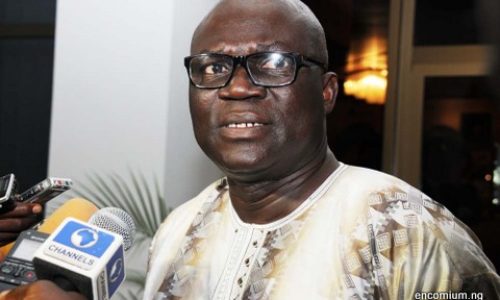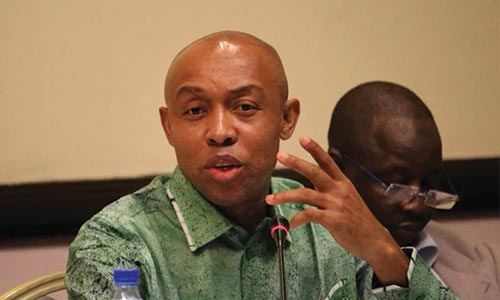JAMB and the Burden of Education

By Ebun-Olu Adegboruwa SAN
Very recently, the iconic Registrar of the Joint Admissions and Matriculation Board, JAMB, Professor Ishaq Oloyede, appeared before the National Assembly to defend the budget of the agency. A lot of revelations came out of that session, especially from the presentation made by the Comrade Senator, Adams Oshiomhole, concerning the 2024 expenditures of JAMB. The allegations revealed by Comrade Oshiomhole suggest a lot of atrocities against the agency under Professor Oloyede, such as abuse of power, misappropriation, breach of regulations, profligacy and excessive pampering of members of staff, all at the expense of poor Nigerians.
There is also the issue of waste arising from dual sources of funding. While the federal government allocates funds to run JAMB as an agency of government, JAMB still prides itself as a revenue-generating institution, by charging candidates and their parents exorbitant fees for the examinations conducted for admission.
Education is classified by many nations as an essential service primarily because of its importance to social development, being the basic foundation for human knowledge. How an agency connected with facilitating knowledge transformed itself into another federal revenue platform cannot cease to amaze me. Let us now consider the details of the allegations against JAMB under Professor Oloyede as monitored in the media.
“The Joint Admissions and Matriculation Board (JAMB) has stated that it spent N1.1 billion on meals and refreshments, and another N850 Million on security, cleaning, and fumigation in 2024. The JAMB Registrar, Prof Ishaq Oloyede, had made the disclosures while defending the agency’s 2025 budget proposal before the National Assembly Joint Committee on Finance. Oloyede revealed that in 2024, JAMB remitted N4 billion to the Consolidated Revenue Fund and received a N6 billion grant from the Nigerian government.
This did not sit well with the committee, which questioned why a self-funding agency like JAMB was still receiving government funding. Abiodun Faleke, the Chairman of the House Committee on Finance, raised concerns, asking, “You remitted N4 billion and got N6 billion from the Federal Government. Why not keep the N4 billion and we stop the government from funding JAMB?” Senator Adams Oshiomhole also criticised the agency’s expenditure, questioning, “You spent N1.1 billion on meals and refreshments.
“Are you being freely fed by the government? What this means is that you are spending the money you generate from poor students; many of them orphans. Oshiomhole further queried JAMB’s N850 million spending on security, cleaning, and fumigation, asking, “What did you fumigate? Is it mosquitoes that took all this money?” He also condemned the N600 million spent on local travel and pressed Oloyede to justify the N6.5 billion allocated for local training.”
Although the National Assembly Joint Committee on Finance would later issue a statement purporting to absolve the JAMB Registrar, that has not doused the fire of controversy that these revelations have generated. Speaking for myself personally, I do not see the need for a central agency in a Federation to coordinate admission into higher institutions, including those established by States, individuals and organisations. It defeats the concept of federalism when schools have to queue for one single agency to approve candidates for admission.
We can set standards or guidelines to be followed in order to achieve some equilibrium but it is totally anachronistic to stifle the autonomy of institutions that have not been established or funded by the federal government. Many parents have been thrown into perpetual agony every year, due to the inability of their wards to secure admission into any tertiary institution, such that there are youths in Nigeria who have been on the JAMB radar for over five years, waiting for their letters of admission from the ‘almighty JAMB’, as it is now known. The JAMB Act was enacted to commence on December 7, 1989, with a mandate for the agency to perform the following functions, under and by virtue of section 5 (1) (a) – (c) and (2) thereof:
5. (1) Notwithstanding the provisions of any other enactment, the Board shall be responsible for –
(a) the general control of the conduct of matriculation examinations for admissions into all Universities, Polytechnics (by whatever name called) and Colleges of Education (by whatever name called) in Nigeria;
© the placement of suitably qualified candidates in collaboration with the tertiary institutions after taking into account.
(i) the vacancies available in each tertiary institution;
(ii) the guidelines approved for each tertiary institution by its proprietor or other competent authority;
(iii) the preferences expressed or otherwise indicated by candidates for certain tertiary institutions and course; and
(iv) such other matters as the Board may be directed by the Minister to consider, or the Board itself may consider appropriate in the circumstances.
To be continued tomorrow.
Adegboruwa is a Senior Advocate of Nigeria (SAN).
Source: The Guardian



